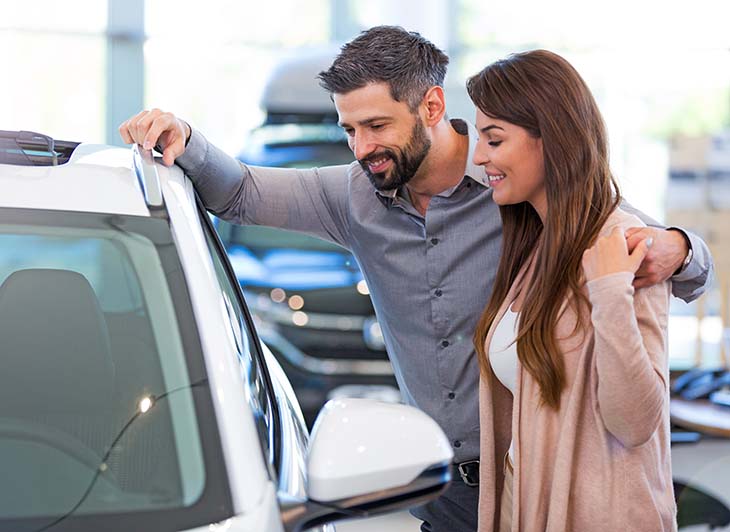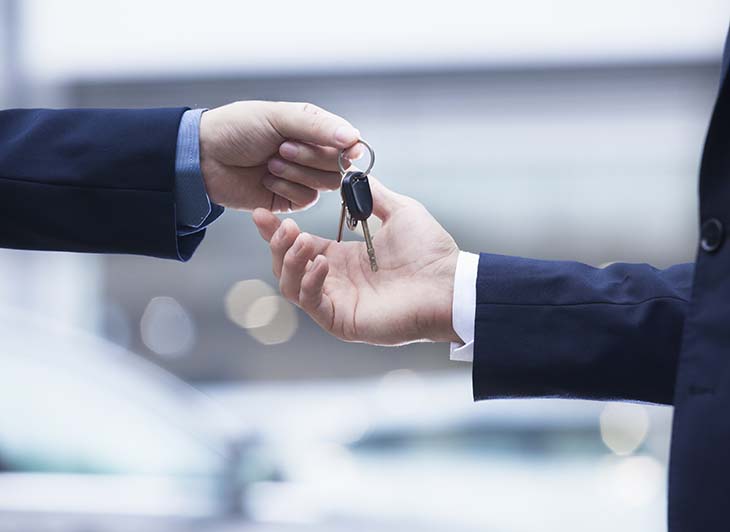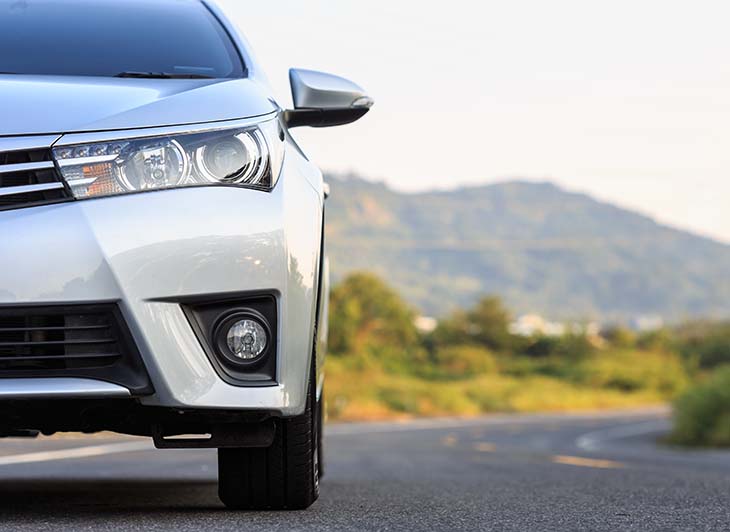When the time comes to change your car, you’re probably thinking more about what you want, rather than how you get it.
Sure, you’ll probably be considering your budget. But more likely, you’ll be thinking about the make, model, and even colour of your new vehicle. A question you have to ask yourself is ‘How am I going to get my new car?’.
There are two ways you can do it. Buying your car or leasing. In finance terms, buying a car is where you have fully paid off the cost of the vehicle at the end of the agreement, whereas leasing is effectively hiring the car for the duration of the agreement. Both have their pros and cons.
You’ll need to ask yourself a few questions to ensure you choose the option that’s right for you. That’s why we’ve put together this guide to talk you through the different options and help you choose what’s right for you. So, should you buy or lease your new car?
Buying a car

This may seem like it’s the obvious option when it comes to getting a new vehicle. After all, we all want to own something we invest a lot of money into. When you buy a car on finance, you will normally be using a product like Hire Purchase, one of the most popular car finance products we offer here at Creditplus.
When you buy a car on finance, you spread the entire cost of the car across the agreement, minus any deposit you pay upfront. Some products, like hire purchase, will calculate the total cost of the interest rates and divide them across the agreement too, meaning you will know exactly how much your monthly repayments will be from the start.
In some cases, a proportion of the total cost is reserved for the end of the agreement as a final payment. This helps to keep monthly costs down, and this final payment can often be financed in itself.
The advantage of buying a car, is that you own the vehicle at the end of the agreement. This means you don’t have to worry so much about the amount of miles you do each year or the condition of the car, as you would with a leasing agreement.
The obvious disadvantage is that you end up paying more in your monthly payments than you would in a leasing agreement. And while you keep some value in having the car at the end of the agreement, depreciation does have an effect.
Once you reach the end of your agreement and all your final payments have been made - you can of course sell the car on and use the money as a part-exchange or deposit on a new vehicle, but there are simpler ways to do that (which we'll come to shortly).
Leasing a car
When you lease a car, you’re effectively hiring the vehicle over the length of the agreement. This type of leasing deal is available in a number of products, including contract hire. Most leasing deals have a variable interest rate, so you can benefit from fluctuations in the market.
The major advantage of a leasing deal are the lower monthly payments. By paying less each month, you might be able to set your budget to afford a better vehicle than you would if you were thinking about buying it out right.
At the end of the agreement, you’re free to choose a different car and start a new finance package straight away. And by meeting the monthly payments over the agreement, your credit rating will hopefully have improved – meaning you can access better interest rates in the future (providing you have been financially sound in other aspects of your life, not just your car!).
At the end of the agreement, you have the option to enter another lease for a newer model, taking advantage of improvements in technology and quality.
The disadvantage of a lease agreement is that you never own the car. By effectively hiring the vehicle, you have to ensure that you follow the requirements set by the lender. This can vary from annual mileage limits, condition requirements, to having to have a warranty or added protection for the vehicle. You also could potentially have spent a lot of money invested in something you don’t own.
PCP: The best of both worlds
Personal Contract Purchase or PCP is one of the most unique finance products on the market, offering the low monthly cost of leasing a car, while giving you the option to buy the car at the end of the agreement. The PCP monthly payments are calculated based on you paying off the depreciation of a car’s value from the start and the end of the agreement. So if your car was to drop in value by £3,000 across the years, then you would be paying off that £3,000 (as well as interest payments).
When you reach the end of the PCP agreement, you have three options.
1) Return the car to the lender
2) Pay a one-off final payment (known as a ‘balloon payment’) and own the car.
Or 3) use the car you’ve been financing as a deposit on a new finance package.
These three options mean you have a wider choice than you would have if you chose an exclusively buying or leasing agreement. But be aware, PCP deals are generally only available to those with an excellent or good credit rating.
So, which option should you go for?

Before you make a decision, work out what your budget is likely to be across the length of the agreement. Take into consideration any outside factors that might arise, such as a change of job, moving house or a new addition to the family (child, not pet!).
When you know what your monthly budget is, then you can think about what you want from your agreement. Do you want to finance the purchase of a car you love? Or do you want to drive one car for a few years and then change it to something newer at the end?
Apply Online Today
No matter which option you are considering, when you apply for car finance with Creditplus, your dedicated car finance specialist will be able to talk you through all the options available.
Simply complete the online application form and we'll be in touch to discuss your options and work out how to find the right car, and finance product for you.





 Facebook
Facebook Twitter
Twitter Instagram
Instagram LinkedIn
LinkedIn Youtube
Youtube